Draw an array to represent 3 x 6. Solve.
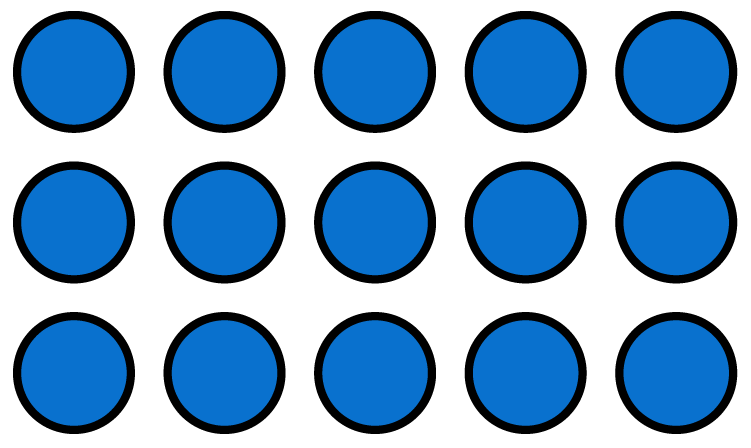
3 x 6 = 18
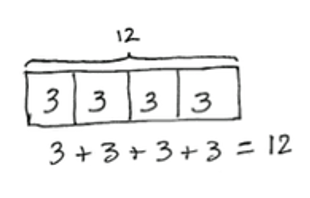
Write a multiplication sentence for this tape diagram.
3 x 4 = 12
3 x 0 = ?
0
Emma collects rocks. She arranges them in 4 rows of 3. Draw Emma’s array to show how many rocks she has altogether. Then write a multiplication sentence to describe the array.
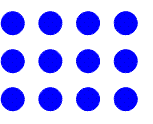
4 x 3 = 12
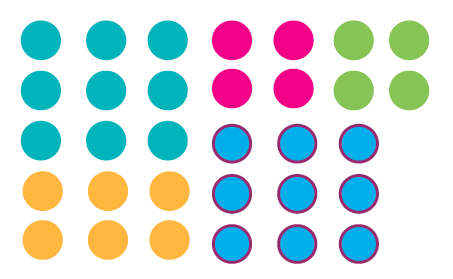
Which color array represents 2 x 3?
Yellow!
5 x 5 = ?
___ x 1 = 5
5
Kai separated 36 index cards into 4 equal stacks. Write a number sentence that could be used to determine the number of cards in each stack.
36 ÷ 4 = c
c = 9

Write a division sentence for this picture.
12 ÷ 4 = 3
Phoebe had 6 puppies. Each puppy has 4 legs. How many legs do the puppies have all together? Draw a tape diagram to represent. Solve.
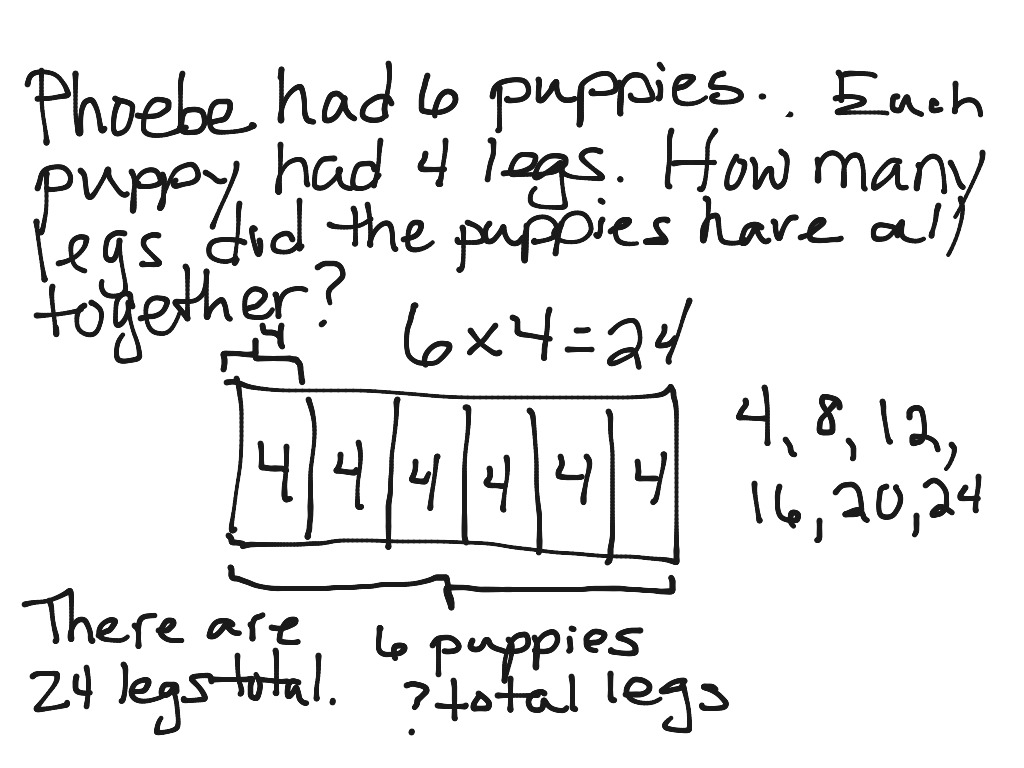
(___ x 3) x 2 = (4 x 3) x 2
4
Martine and Aleyah are solving the problem below:
16 ÷ 2 = N
Martine says they should use the equation “N x 2 = 16” to solve. Aleyah says they should use the equation “16 x 2 = N” to solve. Who is correct?
Martine is correct. Multiplication is the opposite of division. N = 8.
How many rows? How many columns?
6 rows and 9 columns
16 ÷ 4 = ?
4
Which property says that when you multiply any factor by 1, you get the other factor?
Identity Property
Tamara is solving the equation 9 x 2. How can she use the commutative property to make solving easier? What is the answer?
Tamara can do 2 x 9 and skip count by 2's. the answer is 18.
Write a math story that shows 4 equal groups of 2.
Example: Ms. Vega had 4 tables with 2 students at each table. How many students are there in all?
3 x 9 = ?
Which property says that even if you switch the order of the factors, the product stays the same?
Commutative Property
There are 7 lunch tables in the cafeteria. Each table can sit 8 kids. If all the tables are completely full, how many kids can sit in the cafeteria?
7 x 8 = 56. 56 kids can sit in the cafeteria.